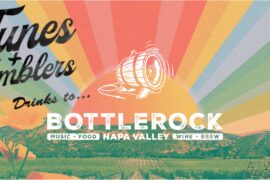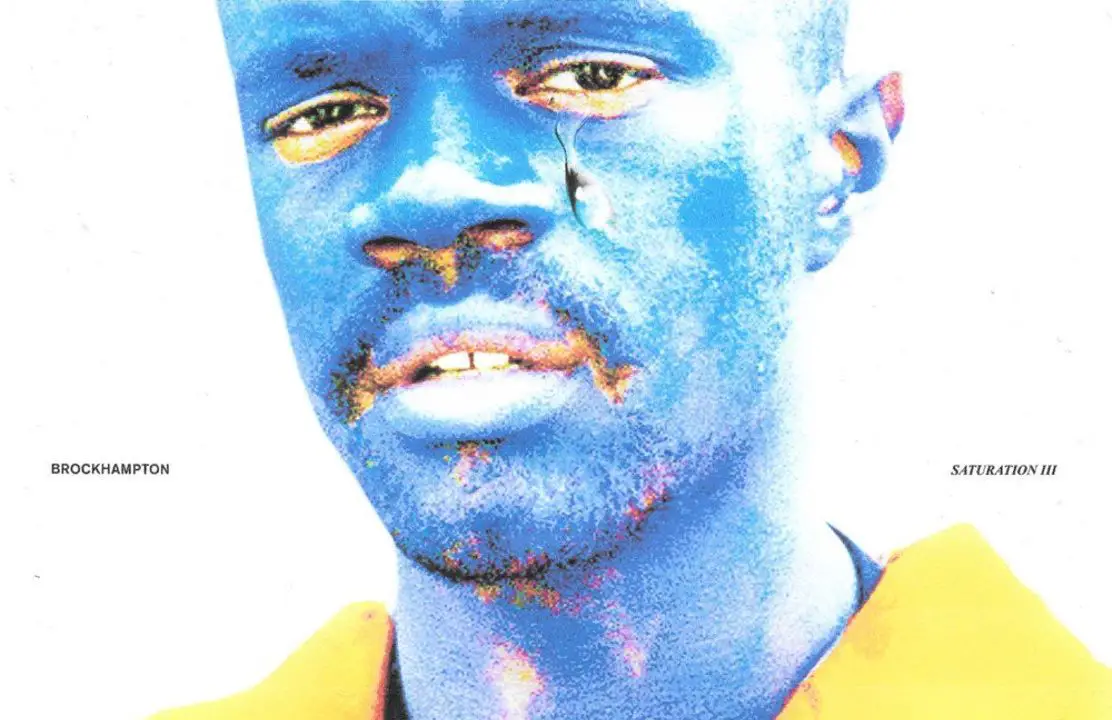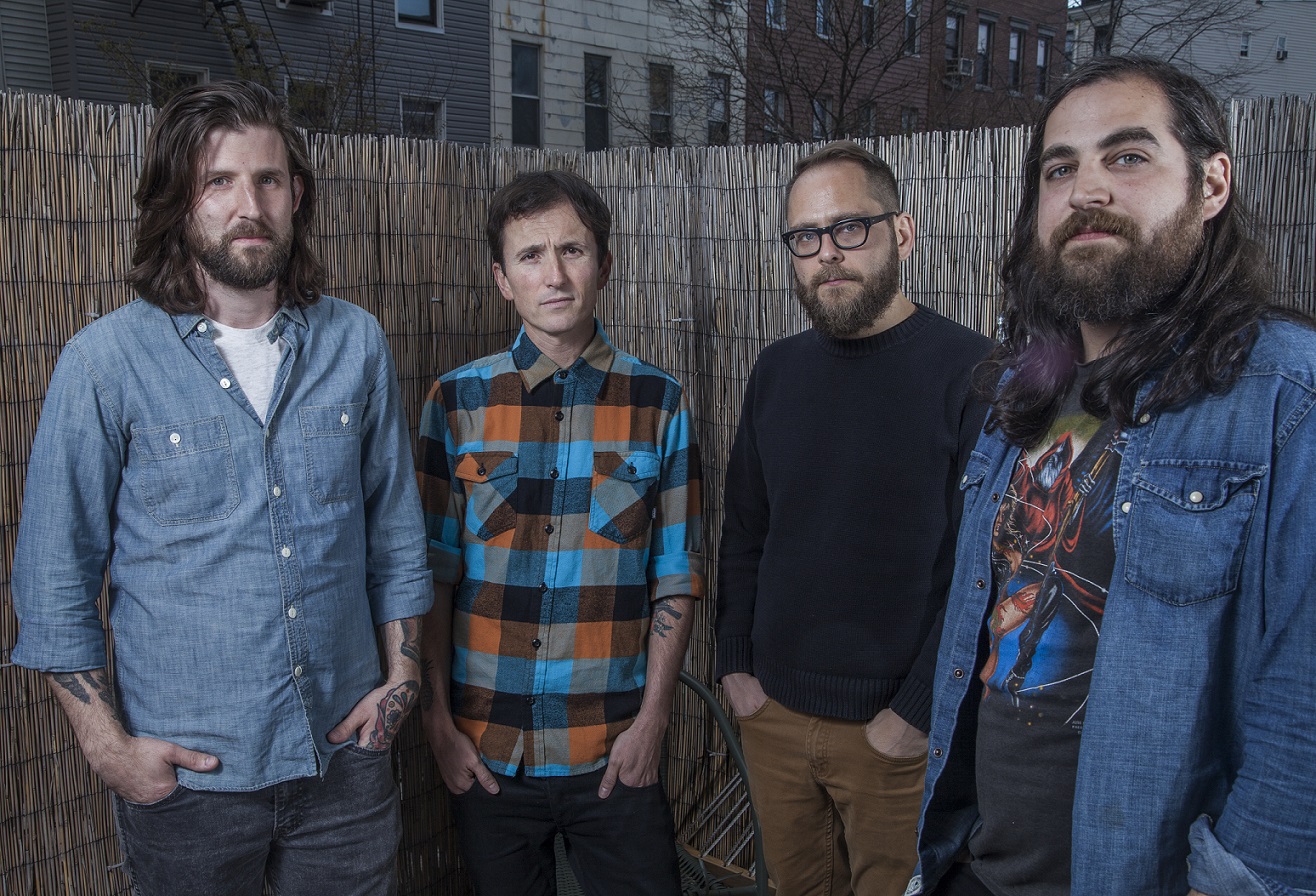NYC indie pop siblings BAILEN dive into the heart-wrenching depths of their soul-stirring sophomore album ‘Tired Hearts’ in a candid conversation about growing up and confronting life’s cruel truths, New York’s buzzy music scene, and their favorite band nicknames (hint: “East Coast HAIM” is a winner).
Stream: ‘Tired Hearts (Deluxe)’ – BAILEN
BAILEN’s sophomore album is a smoldering, soul-stirring enchantment – and it just got an upgrade.
Achingly intimate and beautifully raw moments of truth are easy to come by on Tired Hearts, as the New York City-based sibling trio spill their souls through passionate indie pop melodies and heart-rending harmonies.
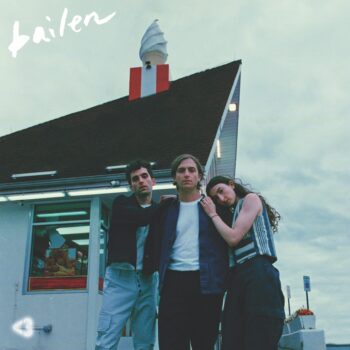
Arriving four long years after the band’s 2019 debut album Thrilled to Be Here, 2023’s Tired Hearts is an evolution in every sense of the word. We’re all older, sure, and as New Yorkers, we’ve all been traumatized (to some degree) by what the COVID-19 pandemic did to our own lives and to our city; but Tired Hearts dives even deeper than that. Julia, Daniel, and David Bailen wear their hearts on their sleeves as they sing about love, about illness, about family, and about carrying life’s heavy burdens on their shoulders and in their souls. Working together with producer Brad Cook (Bon Iver, Snail Mail, Waxahatchee), BAILEN reach a new musical high while plunging unapologetically into their lows.
“I feel like the thesis for a lot of these songs was to find a hope and a sense of perseverance in the face of a lot of pessimism and a feeling of non-communication, struggling to vocalize things in your life or to put a name to them, and finding the beauty in all of that struggle and all of that,” Julia Bailen tells Atwood Magazine. “Sometimes loneliness and sometimes connection. I think it definitely, the arc of the record, ends on a very optimistic note. Even though it’s a record with a lot of darkness and a lot of very tender emotional texture to it.”
For her brother David, the album also highlights their effort to make three become one – especially in their band, where everybody is a writer and a lead singer. “Finding that singular narrative voice is often not as easy,” he explains “Trying to unify our voice into one singular narrative was the intention with this record almost, rather than having it be three separate narratives.”
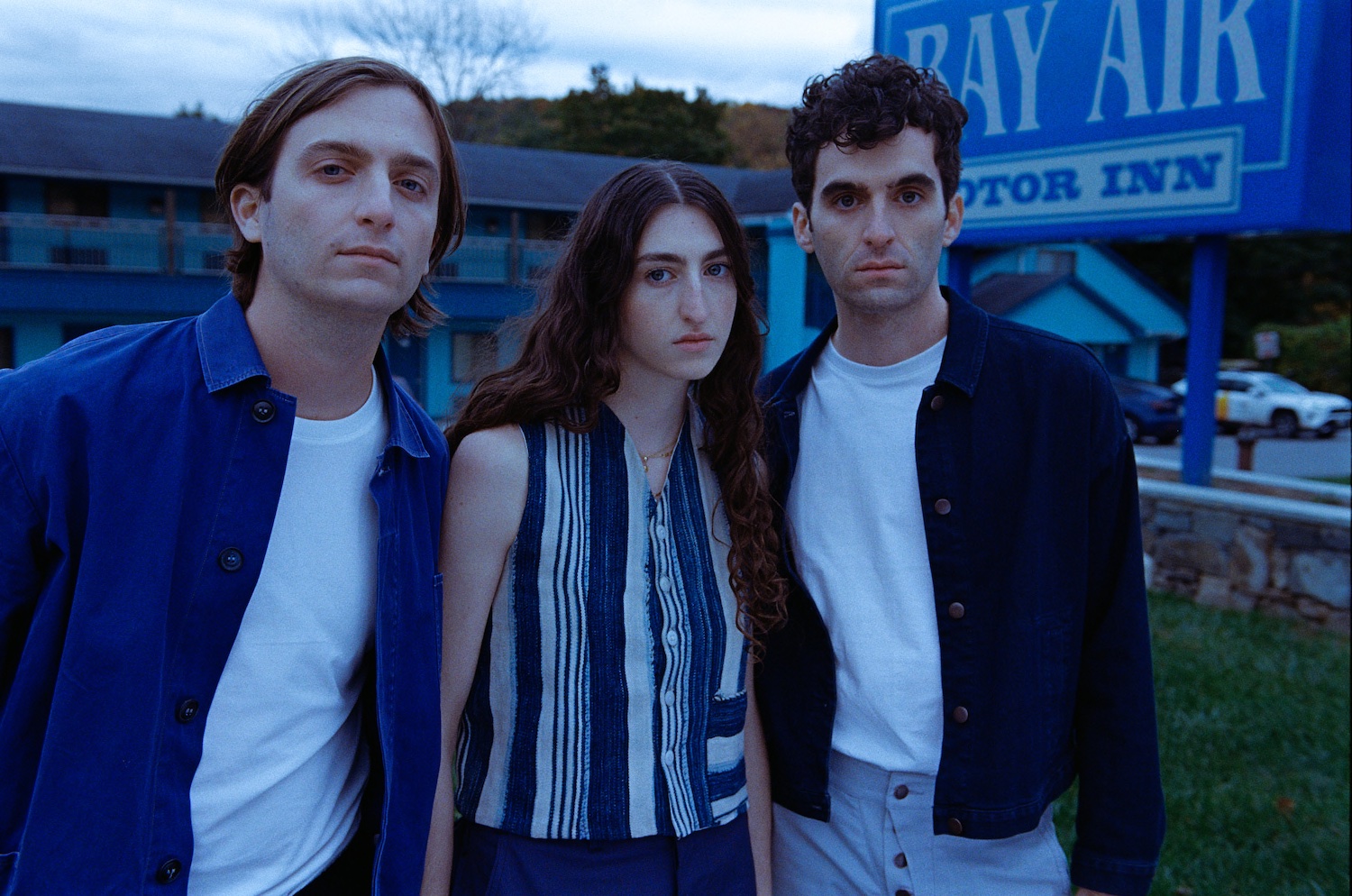
Candid, unfiltered, introspective, and revealing, Tired Hearts is a record reckoning with inner and outer turmoil.
Its songs find the Bailen siblings confronting the turbulence in our immediate lives and the friction we’ve experienced, both personally and existentially, at a national level in recent years. Passionate, heartfelt declarations about women’s rights and empowerment share a space with songs of healing, songs of yearning, and songs of hope as BAILEN navigate their late 20s, in the 2020s.
Highlights range from the radiant, spirited anthem “Call It Like It Is” and the breathtakingly dreamy, vividly dramatic title track “Tired Hearts,” to more nuanced moments like “Nothing Left to Give,” an uplifting mantra of perspective and perseverance (and Atwood Editor’s Pick). “I know I’ll make it out of this alive, so don’t stop me from trying to enjoy the ride,” Julia Bailen sings at the song’s start, a sense of urgency, intimacy, and raw determination radiating off her voice. “Gotta keep from burning out before I hit my stride.”
One of the album’s indisputable sleeper hits is “These Bones,” a gentle song that hits hard not through sonic force, but rather through warm harmony and vulnerable, poetic lyricism. The trio wear their hearts on their sleeves as they sing about the pain of loss and the healing process, sending shivers down the spine through their brutally raw poetry and performance:
The soul drunk and the body wasted
We were sleeping there on the bathroom floor
Flattered in dreams, deceived in waking, we were
Dragging our feet through the morning wars
Look around I see the fractured frame
What’s left to hold up the heart and the brain
Like shattered glass and cracking stones, you say
You find you’re broken but you’re not alone
These bones will heal on their own
They’ll heal on their own, just givе it time
These bonеs they’re broken and bent
They’ll meet and they’ll mend back together again
A this too shall pass-type beacon of wisdom, empathy, and caring, the song’s climax is the musical equivalent of a big bear hug – the kind that squeezes the air out of you, and with it all those burdens that have been weighing you down.
Another unforgettable highlight is the hauntingly beautiful “BRCA (Nothing Takes Me Down),” whose titled is derived from the breast cancer gene Julia Bailen shares with her mother, a breast cancer survivor. I also have the BRCA gene (which is particularly common in Ashkenazi Jewish people – get checked!), and never before have I felt so close to an artist in the way I do when I listen to this gut-wrenching, sweetly soothing song.
It’s all just an uphill battle
You shoulder the brunt because
You wish it wasn’t mine
But I’d take it every time
You’ve given the best you could give
And I know that I wouldn’t change it now
Oh nothing takes me down…
Nothing takes me down
And it won’t change my plans
I’ll still live like I’m dying
But I won’t let it take me down
“This thing happened where I found a lump in my breast, and we did an ultrasound,” Julia Bailen says of that song, which – she and her brothers agree – is their most personal release, possibly ever.
“It was a cyst and I was fine – and it’s super not concerning – but right after that, I wrote all these lyrics because my mom felt so guilty, and she felt so responsible for this thing. And I just needed her to know that there are so many worse things to pass on as a parent. She has given me a beautiful life and been an incredible mother in all these other ways that, even if your genes are perfect, you don’t get that all the time. And I really needed to tell her that.”
This is a prime example of an artist channeling their pain and darkness into beauty, and it’s just one of innumerable magic moments that light the way through Tired Hearts – as well as life’s inevitable hardships.
BAILEN haven’t just upped the ante with this album; they’ve absolutely outdone themselves, absolutely earning their spot on Atwood Magazine‘s Best Albums of 2023 feature. And with the release of Tired Hearts (Deluxe Edition), the Bailen siblings have reaffirmed their status as one of New York City’s best acts, making some of the most beautiful music we’ll hear all year – if not all decade.
Released February 5, 2024 via Fantasy Records, the deluxe Tired Hearts edition adds six new tracks to the original LP’s twelve, including an achingly beautiful, stirring duet of “These Bones” with singer/songwriter Amos Lee, haunting one-take versions of “BRCA,” “Nothing Left to Give,” and “Call It Like It Is,” and a brand new song: “You Would Never Know,” in which the band open with an homage to their hometown before erupting into an enchanting, vulnerable, and cathartic confessional of emotional breaking down:
You’ve been saving it for never
Holding it together
But you would never know
I’ve been crying on the subway
Dealing with it my way
I can’t help that it shows
Somewhere underneath your silence
I can see the pain you’re fighting
But you would never know…
Atwood Magazine caught up with BAILEN last year to chat about their stunning sophomore album, New York’s bustling music scene, and the constant struggle for us late-20s and early-30s millennials, confronting the often cruel and confusing realities of an adulthood we didn’t see coming.
“There’s so much cognitive dissonance in growing up right now,” Julia Bailen reflects. “I feel like there was so much health angst around this record. I just turned 26, so I was on my parents’ health insurance for a long time, but there are a couple of songs that deal with trying to find medications to deal with depression… having to face these things really head-on, and not being totally sure how to do that as an adult.”
And of course, no conversation with BAILEN would be complete without discussing possible nicknames.
“Someone called us the Jewish Hanson the other day,” David quips.
“East Coast HAIM sounds good too!” Daniel laughs.
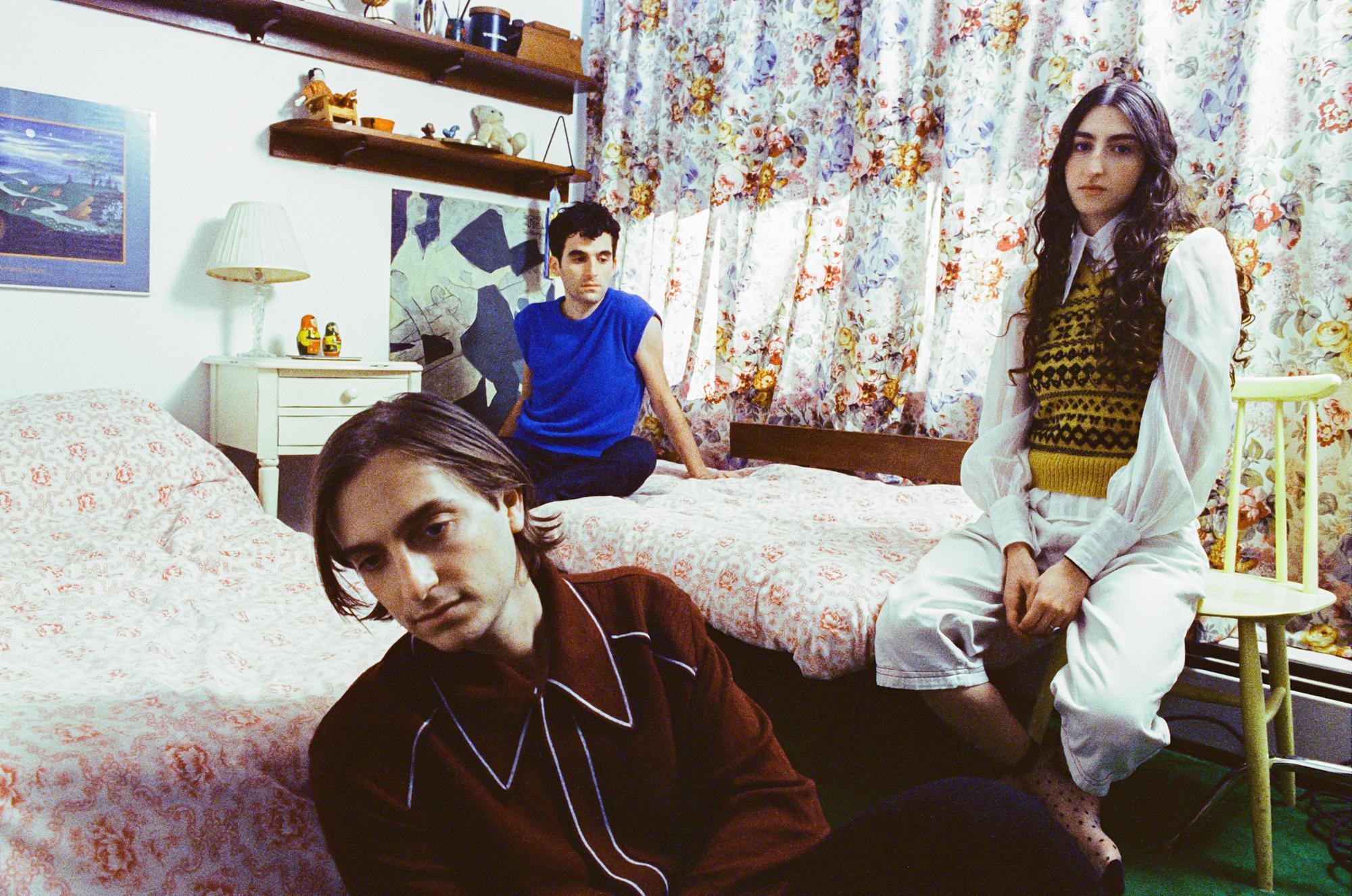
Call them whatever you want, but BAILEN are musical dream-weavers,
having packed their unbridled and most authentically human and real-life experiences into a record that promises to fill our ears and hearts with joy, love, warmth, and healing – if not a little aching, as well.
Catch up with the band in our interview below, and connect with your deeper self in the intimate, seductive world of Tired Hearts.
“I hope that the listeners feel that mushy, happy, sad place that is so nice to feel, like that place where it’s you can feel sad, but hopeful at the same time,” David Bailen smiles.
“I wanna make people dance crying. I hope that they’re moved to movement, but also crying in this record,” Julia adds. “Like a true release; an undefinable feeling. It’s a very proximate record, so I hope people feel close to us in all the ways. That’s what we’re going for – a closeness.”
Catch BAILEN live on their Tired Hearts Club Tour, which kicks off on February 8 and will run through April, featuring support from Esme Patterson, John Robert, Rett Madison, BEL, and Cece Coakley! Find tickets and more info at bailentheband.com.
— —
:: stream/purchase Tired Hearts (Deluxe) here ::
:: connect with BAILEN here ::
Stream: ‘Tired Hearts (Deluxe)’ – BAILEN
A CONVERSATION WITH BAILEN

Atwood Magazine: BAILEN, what's it been like to have your long-awaited second album out in the world?
David Bailen: It’s definitely a long time coming, and it’s a relief to have some new music out! [laughs]
Julia Bailen: It’s really nice. I feel like we’ve gotten a lot of really lovely text messages from everybody. Releasing music can feel very ambiguous, I think we’re kind of all very familiar with this record and waiting to see how people live with it. It’s fun to watch people go on the journey that we went through a year ago or whatever with these songs.
Daniel Bailen: Yeah, the album was such a journey for us. The idea of someone experiencing it on first listening and going through that journey, I feel like it needs to be out in the world a little longer for people to fully experience the journey that we went on, but –
Julia Bailen: – we’re starting to play some of it live, which has been really interesting to get comfortable with it and to discover how the songs live on stage too, which is a very different thing for us ’cause it’s ranging it for a power trio. The vocal arrangements on the record are very subdued, so making that work for live is different. That’s been really fun and exciting too.
Daniel Bailen: It’s been really cool seeing people singing along to this. I forget the words all the time, and there’s someone right in the front row knowing every single word better than me.
David Bailen: Yeah, people already know the words to the new songs.
Julia Bailen: People are… They’re singing along!
David Bailen: The new songs, when they’re mixed up with the old songs in the same set, it’s a nice set now. They go together. It feels like it’s its own genre, the BAILEN genre. [laughs] It’s really cool, and we’ve been getting such positive feedback from it, the record, and a nice response from the fans.
Julia Bailen: My friend called me, she is starting a long distance relationship and she was like, “your album f*ed me up.”
Daniel Bailen: It’s always nice when people connect to it. That’s what you want.
David Bailen: And it’s been a long time since we released music, so I think it just feels good to finally get stuff out. We’ve had this record for a while in the can.
Julia Bailen: It’s fun. It’s always so delayed everything when you’re releasing music, you’re like, “Oh, we’re onto the next thing.” Or like, “We’re ready for the next record,” or whatever. But I’m excited to get to live in this for a little while.
It's been four years since your debut album, Thrilled To Be Here, came out. Daniel, you called your new one “a journey.” Can you kind of expand on what you meant by that?
Daniel Bailen: Oh, I just think that a lot of these songs are written in that pandemic time where like the world shut down. We kind of had this extremely unique period of time to be alive. And just like those songs that were born in that time kind of will always have a pretty unique DNA just because of the virtue of the time period that it was being written in and that feeling that, that we had. And then when the world started to open up again, like the songs kind of started to change and we probably could have released that one album of Pandemic Era just then. But it kind of ended up, we kind of saw a through line within the transformation of the songs, songwriting as the world kind of opened up again. And just living through that as a band and trying to figure out your place in the world as artists in that time was just a unique thing to go through. And I think the record reflects that.
Julia Bailen: Yeah. I think it’s like a very different record from the last one too. So I feel like it reflects our kind of personal changes throughout that time and also like kind of that the world is a very different place, so.
Daniel Bailen: It took a long time to make and get to the finish line. And there’s three of us and it took three years of making it. We wrote 150 songs or whatever.
Julia Bailen: No, there were like 60 songs. But that number always gets bigger every time we say it.
David Bailen: We wrote 700 songs.
Daniel Bailen: [laughs] It feels like we wrote a million songs!
Julia Bailen: We wrote 63, 65 songs.
David Bailen: We have enough for more records, so we’ll be releasing stuff more frequently now.
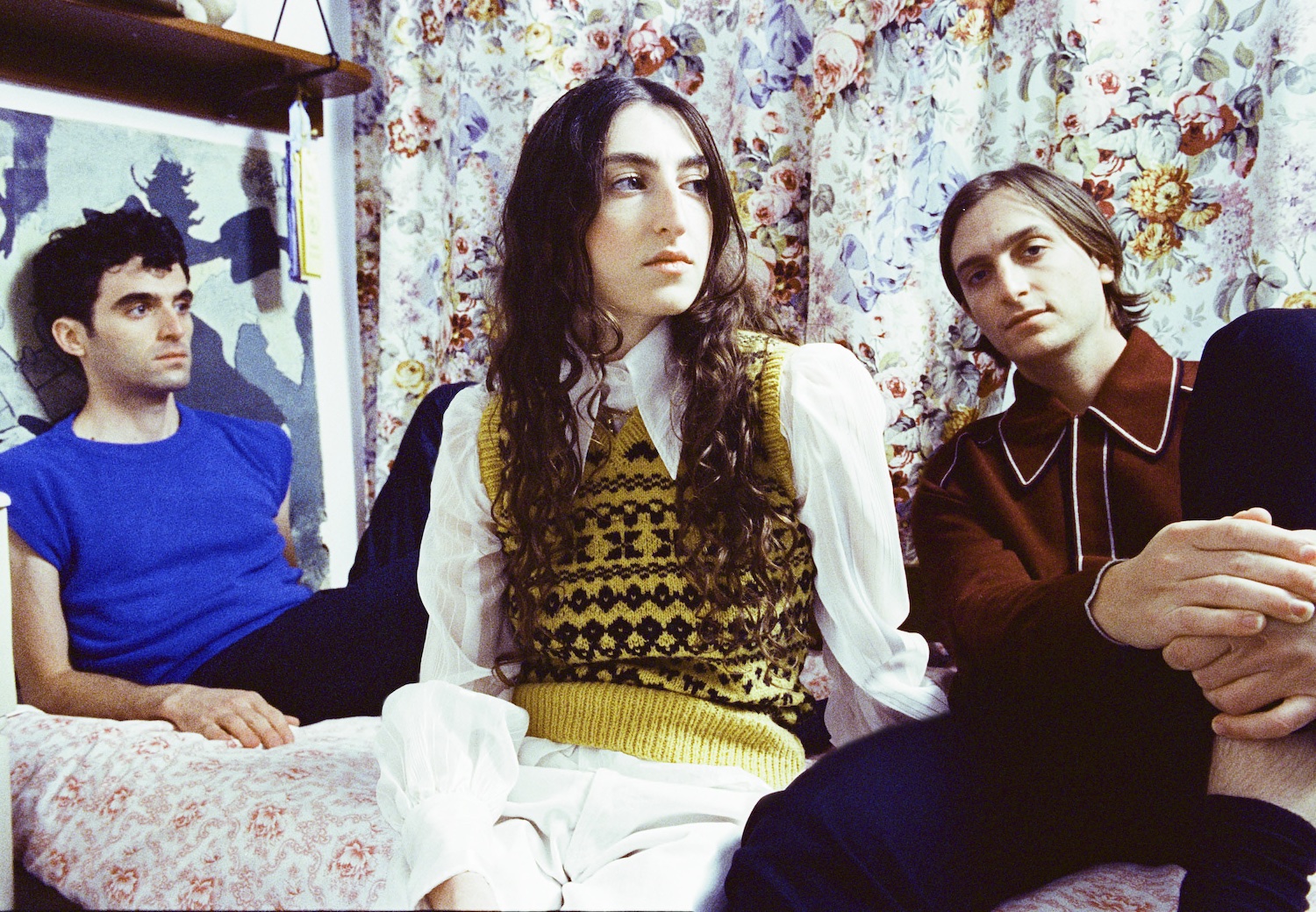
We're all in our late 20s now. Is there something to be said about this album reflecting that point in life where you think you're supposed to be a grown up, and yet we don't feel like the adults we saw our parents as?
David Bailen: Oh, man. Yeah.
Julia Bailen: That’s a really good way of putting it. I love that. I hadn’t thought about it like that before, but that does feel very poignant and accurate to where we were writing, how we were writing.
David Bailen: Yeah, there’s definitely a lot of that. I feel like our whole generation experiences that – we certainly have.
Daniel Bailen: It’s not on the album, but “25 For The Last Time,” I don’t know if you know that song, it’s kind of exactly what that song is about. That’s on the mixtape that we released after Thrilled To Be Here.
David Bailen: “Shadows” also has that lyric, “We’re as young as we’ll ever be, but don’t it feel old? Sometimes it feels like there’s nothing to show and you’re out there all on your own.” There’s a lot of that feeling of like, “Maybe I’m not where I’m supposed to be, but I’m right where I’m supposed to be next to you.” Or the love songs – “maybe I’m not where it’s supposed to be, but that’s okay.” There’s a lot of that.
Julia Bailen: There’s so much cognitive dissonance in growing up right now. I feel like there was so much health angst around this record. I just turned 26, so I was on my parents’ health insurance for a long time. But there are a couple of songs that deal with trying to find medications to deal with depression. Like “Nothing Left to Give” is very much about that. And “BRCA,” which is about my health journey and health anxiety, and having to face these things really head-on. And not being totally sure how to do that as an adult.
I actually wanted to talk to you about BRCA, Julia. I’m actually BRCA-positive as well.
Julia Bailen: No way. Hell yeah.
I have never heard or seen anybody actually talking about BRCA in popular culture before. Needless to say, no one has ever, to my knowledge, written a song about it before. It felt nice to be seen and heard, and I just wanted to talk about that song a little bit more, if you don't mind sharing it.
Julia Bailen: Yeah, I also hadn’t really seen a lot of people talk about BRCA. I see people talk about it in the context of having had breast cancer, or having already had cancer. But I got the genetic testing done when I was 19 or 20, maybe 21 – right around when we released Thrilled To Be Here. And I think it just affected me a lot more than I thought it would. It gave me a lot of anxiety and anxiety around food and anxiety around our lifestyle and touring.
Because there’s really no way to prevent breast cancer except for prophylactic surgery. And I’m just not ready to have a double mastectomy at 26. You kind of look for ways to avoid cancer. There’s just not really a way to, and so I think I wrote the song as a way to be like, “Look, knowledge is power and like we’re here to survive this. We’re here to have as much foresight and preparation as possible, and live through that.”
We had the whole melody and no lyrics, and we had tried to write lyrics for the song a bunch of times and then this thing happened where I found a lump in my breast, and I went into the high risk program that I’m in, and we did an ultrasound. Right after that, while I was waiting for the results, it was a cyst and I was fine – and it’s super not concerning – but I wrote all these lyrics because my mom felt so guilty, and she felt so responsible for this thing. And I just needed her to know that there are so many worse things to pass on as a parent. She has given me a beautiful life and been an incredible mother in all these other ways that, even if your genes are perfect, you don’t get that all the time. And I really needed to tell her that.
David Bailen: We were also wondering if that song should be on the record because it was so personal. I’m really happy we put it on because the fact that it resonated to you in that way where you felt heard or talked about, it’s a nice thing to be able to make people aware of. It’s just like talking about something that’s not talked about is important.
Julia Bailen: Yeah. Breast checking is very important, making sure that you have access to women’s health and breast health is so important and we’re very, very at risk right now in this country.
David Bailen: The places where people get all this stuff done are the places that are being shut down because of abortion. That is important for people to know about.
Daniel Bailen: And to fight for.
Julia Bailen: It’s all connected.
It’s a beautiful song, and it’s just wonderful to feel seen through your art. Not to mention, Jewish millennials everywhere are just going to love it.
David Bailen: Yeah. That Ashkenazi demographic is –
Julia Bailen: 100%.
David Bailen: Send them our way.
Do you ever think about that? Are the Jewish aspects just a part of the identity or is it ever something that feels salient to you?
Julia Bailen: I mean, yeah, we’re definitely cultural Jews and it feels like a big part of our personalities, for sure. Not like religious.
David Bailen: We’re in it for the jokes. We’re not religious people, but we do identify with that culture. But I wouldn’t say it’s leading how we make decisions, per se. You get our humor, I guess.
Daniel Bailen: It just like it’s a part of our DNA.
Julia Bailen: Like we’re New York Jews, our mom is Elaine Benes, we’re Seinfelds.
Daniel Bailen: We are indeed Seinfelds.
David Bailen: Someone called us “the Jewish Hanson” the other day. And we were like, Alright, yeah, that’s right. “East Coast HAIM” or “Jewish Hanson.”
Daniel Bailen: East Coast HAIM sounds good too.
“East Coast HAIM” sounds great. Meanwhile, a bigger part of your identity is the fact that you are born, raised, live in New York. What's your relationship with the city like and how, if at all, do you feel that in your music?
David Bailen: Just being around all different kinds of people, I feel like is… New York makes you share elbow room with everybody and like from every walk of life. And it’s sort of like, when you’re exposed to that from such a young age, you sort of… I feel like that’s maybe why our music is so eclectic from song to song. It’s like we really do have all these different sort of influences and cultures in our music. And it’s not a product really. It’s, I think, less a product of us of what we listen to rather than more of like who are around and where we grew up.
Julia Bailen: I also feel like New York’s artist community has gotten a lot smaller over the years, just ’cause it’s so expensive to live there. And like we are very lucky and privileged to have a very robust foundation there because our parents live there. And I do feel like a little bit insulated from some of the LA scene or, I don’t know, like music that’s happening outside of New York because it’s such a small community now. And so I think that there is a little bit of like loneliness on this record because of that. Like there’s a little bit of a lonesome bent to it. That’s the pandemic too – but that’s part of it. We lost a lot of people over the pandemic to LA or Nashville –
Daniel Bailen: – and to COVID.
David Bailen: Yeah, New York definitely feels like a different place a little bit.
Daniel Bailen: In terms of the scene, yeah. Our building is still pretty happening! They’ve got BAILEN, and the Overcoats live right upstairs from us! So that’s the music scene right there.
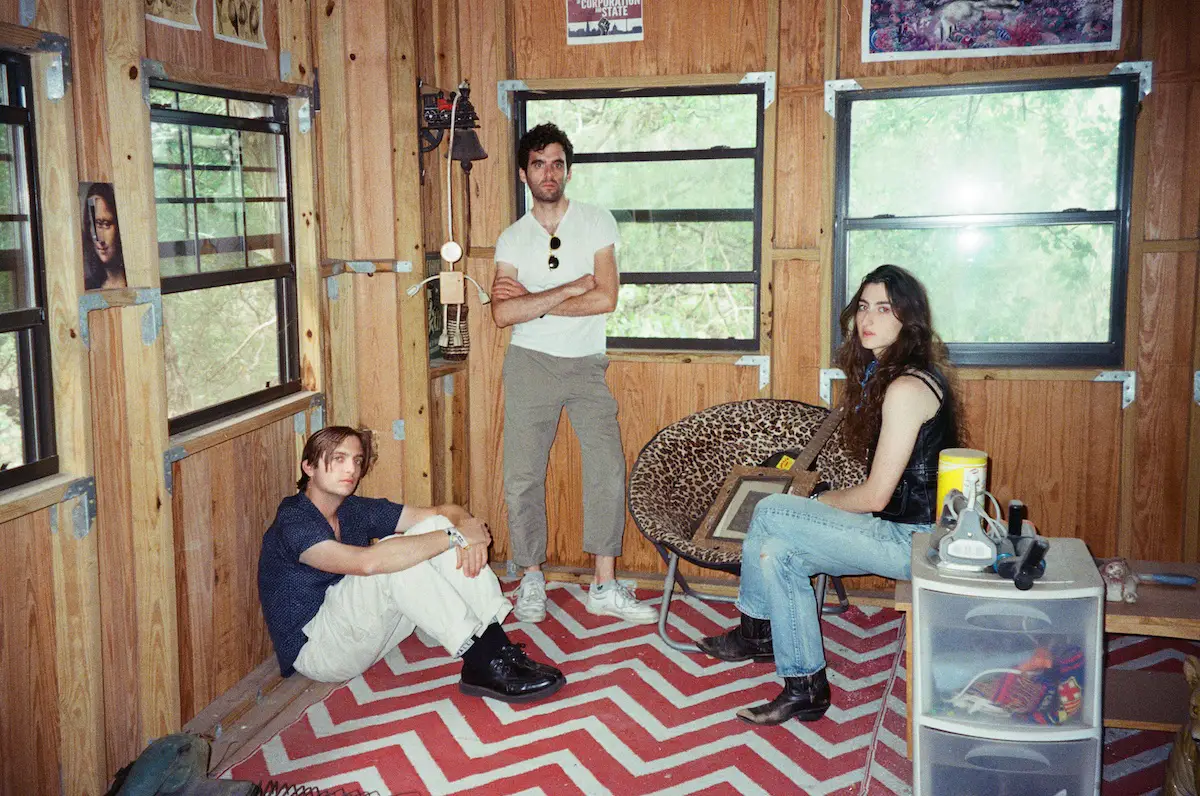
That’s the place to be! Back to your album, you teased this record first with the song, “Call It Like It Is” at the top of the year. Can you tell me a little bit about that song and why you had it go first?
David Bailen: I feel like we had that song go first because it’s the most unlike everything on the record. So we were like, “Okay, we start with this, then we get that out of the way, and people… ” You know?
Julia Bailen: It’s definitely the most poppy, accessible song on the record. I feel like it is ultimately a pop song through and through. We wrote that song with Sam Harris and Adam Levin from X Ambassadors, and it was a very fun session. The song came out very kind of Halloween-y at first. I think we originally wrote it based on that show You.
David Bailen: And I’m a Penn Badgley lookalike, so.
Julia Bailen: So yeah, that’s David’s side gig, actually.
David Bailen: I’m actually the stand-in.
Daniel Bailen: I think one of the only lyrics that, the chorus lyrics stayed in, but like “Bodies in the basement,” I think was the only Halloween-y lyric that made it into the last round. But we did spend a lot of time trying to rewrite those lyrics to kind of fit our mood.
Julia Bailen: Yeah, to fit the vibe and make it more substantive, even though we didn’t have a lot of lyrical real estate to work with. And we ultimately ended up making it about, and I don’t know if this really tracks for people just kind of casually listening, but it’s ultimately about labor rights and talking to folks in our industry that really don’t respect the labor that artists do, and don’t necessarily always feel like they deserve to pay for it, or feel like they have to pay for it –– and then cry wolf about how there’s no money in the industry.
David Bailen: It’s a labor rights song disguised as a pop song, a Halloween pop song.
Heavy-handed demanding to meet your bottom line
If all I ever am is copy, what is left of mine?
Well, I’m falling with you
‘Cause the world is what you made it
Yeah, I’m falling, it’s true
And I’m tired of trying to fake it
So call it like it is
You’ve got some bodies in the basement, yeah
Go on and call it like it is
You’re not the victim that you’re always playing
Oh-oh-oh, baby, don’t lie to me (lie to me)
Shoot the moon and say you’ll save me
Oh-oh-oh, baby, don’t lie to me (lie to me)
Say you love me, then replace me
Just call it like it is
You follow that up with the title track “Tired Hearts,” which also starts the album. I love that song and I think it perfectly sets the scene. What is it about that song that made it the album title?
David Bailen: It’s always felt like the overture to the record, both in the way it builds and the dynamics of it, and the journey it takes you on. We had that song very early on. Daniel wrote most of that song, and then had this really awesome demo that felt like a new sound for us. And we sort of had that first, and we’re like, this sort of can dictate both lyrically where we wanna have the album go, and also sort of sonically. And it kind of embodies all those different sounds, and so that’s why we put it first.
Julia Bailen: Daniel came with that initial demo, which is basically what the record is, most of those stems are what’s on the record, I just had never heard anything like that. And it was just very exciting.
Daniel Bailen: That one was one of those songs where I just didn’t think anyone was gonna like it ’cause it was so weird. And then, it kind of made it through every sort of tier towards making it on the record!
It passed through the 700 other songs.
Daniel Bailen: Yes. Right.
Julia Bailen: It also has a very serious labor back to it.
Daniel Bailen: The lyrics were inspired by an Irish factory worker in the 1850s, who wrote a poem to his son that he never saw. And I kind of inspired the lyrics for the entire song. The chorus dreams about moving out West and leaving this life behind. And that’s always been a reoccurring dream for East Coasters. It’s like, “What if I just left and moved West, and tried to start something new?” And it kind of felt like that was very fitting for what we had been through with the pandemic, just everything seemed to fall apart, and we were like, we need to start something new. I’m really proud of those lyrics. They’re really weird, but they’re really cool. It’s definitely an art song. It’s not like a “Top 40 Ed Sheeran” song.
Julia Bailen: It’s so much fun to play live. That song is so good live. Not to toot my own horn, but it slays.
David Bailen: Yeah, we got some 808s on there. People are like, “What is this, Kendrick Lamar or Mamas & the Papas? I can’t tell. Tell me.”
Do you have any favorites that you really hope folks listen to now that the record is out?
Daniel Bailen: “These Bones” is my favorite on the record. I just think the lyrics are some of my favorite, and it’s kind of a meaningful song for me in the sense that I wrote it when the world shut down and my mother-in-law to be was in the hospital with breast cancer, right when everything shut down. And our grandma was in the hospital and we couldn’t say hi to them or comfort them, and so I kind of wrote this song for them. And so that was a healing song, but also the lyrics feel like they capture my exact feeling in those moments. I just think that one really feels like some of my strongest work and honest work.
Julia Bailen: I love that song. Also, “Shadows.”
David Bailen: “Shadows” feels like me the most. I think it’s hard. We write all the songs together and usually they start from one of us. But I feel like my role in the songwriting process is the choruses and form and sort of tightening up everything, and it feels more infrequent that I get to really put myself in a song from the beginning to the end. So, “Shadows” is definitely that for me.
Julia Bailen: I feel like this record is best when it’s listened to full through. I feel like that’s the best way to experience. The songs make each other better. I really think that.
And then, I don’t know, I have favorites. Obviously, we talked about “BRCA” already… “Leave Me Wanting More,” I think is an awesome track. I really love that track. “Here We Are Again” and “Tired Hearts,” I really love all the songs. And “Nothing Left to Give” too, all the singles.
What do you hope listeners take away from Tired Hearts and what have the three of you taken away from creating it and putting it out?
David Bailen: I think, I hope that the listeners feel that mushy, happy, sad place that is so nice to feel, like that place where it’s you can feel sad, but hopeful at the same time.
Daniel Bailen: Wow I hope listeners quit their job. Yeah. I mean, maybe. If they wanna quit their job… I hope it makes them feel seen too, you know? Like, people can identify with these lyrics. Instagram and TikTok or whatever, it’s just the highlights of people… we open up about what we really go through, and I hope that people can relate to that, feel seen and heard.
Julia Bailen: I wanna make people dance crying. I hope that they’re moved to movement, but also crying in this record.
Daniel Bailen: But also feeling good about themselves.
Julia Bailen: Like a true release. Like an undefinable feeling. It’s way more intimate, it’s a very proximate record. So I hope people feel close to us in all the ways. That’s what we’re going for. Just like a closeness.
What are you most excited about getting back on the road?
Julia Bailen: We hadn’t really been out since before the pandemic, and it was very, very heartening to see – and is very heartening to see – people show up for us and be just the nicest people ever. I feel very grateful to share space with all these people who are just couldn’t be nicer…
Daniel Bailen: Respectful music listeners.
Julia Bailen: And loving people, caring people.
That's great to hear. That's really lovely because you don't always hear that. Last question, then I'll let you go. I always like to end on this note. Who are you listening to... In the interest of like paying it forward to the next artists, who are you listening to that you recommend our readers go check out?
Julia Bailen: Elizabeth Moen, Rett Madison, who’s opened for us, awesome songwriter. I’m listening to a lot of Caroline Polachek. Elliott Skinner is an icon. A New York staple. You wanna talk about community…
Daniel Bailen: Those are the big ones for me.
David Bailen: Yeah. Elizabeth Moen, Rett Madison, Elliott Skinner, Rebecca McCartney.
Daniel Bailen: No relation to Paul, but maybe they should spread the rumor.
Julia Bailen: She’s also a child of a classical musician, so our parents are colleagues in New York. And the Overcoats!
Daniel Bailen: That’s the whole New York scene. That’s it.
— —
:: stream/purchase Tired Hearts (Deluxe) here ::
:: connect with BAILEN here ::
Stream: “These Bones” – BAILEN ft. Amos Lee
— — — —

Connect to BAILEN on
Facebook, Twitter, TikTok, Instagram
Discover new music on Atwood Magazine
© Erica Snyder
:: Stream BAILEN ::

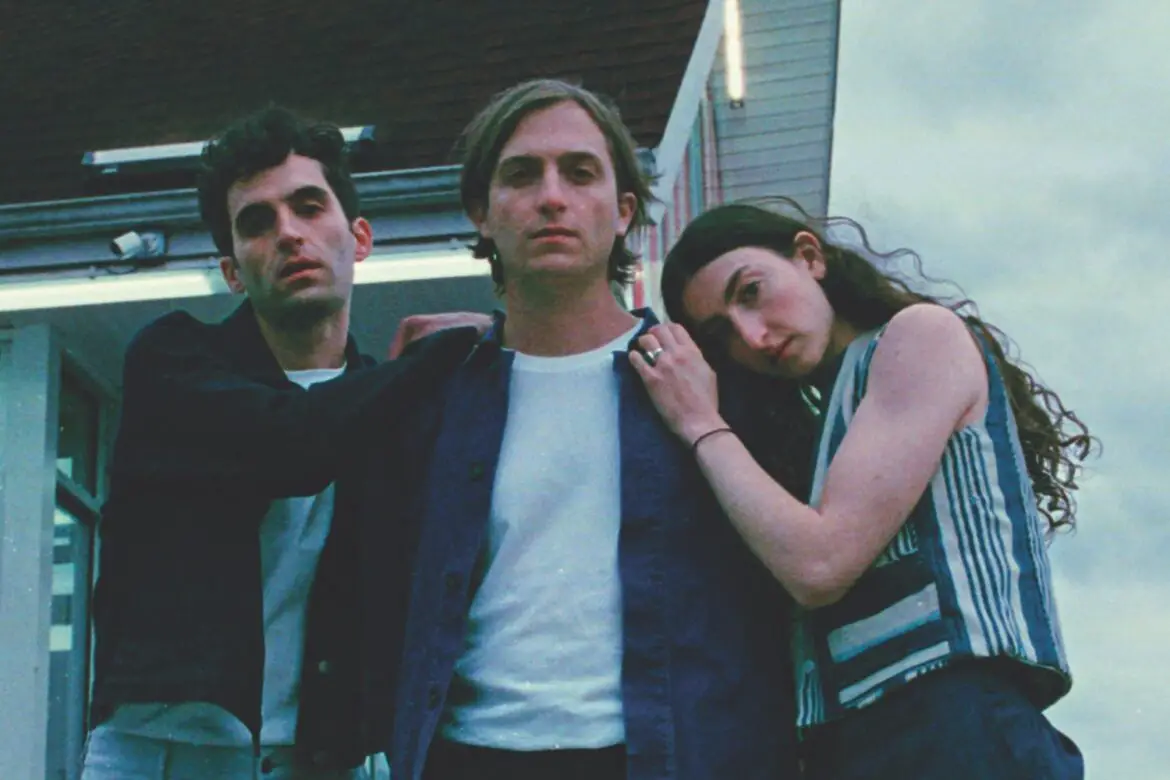
 © Erica Snyder
© Erica Snyder